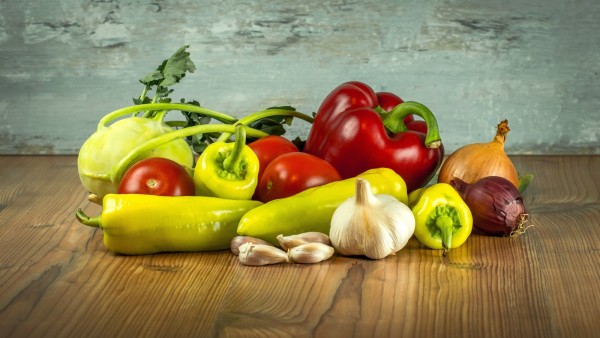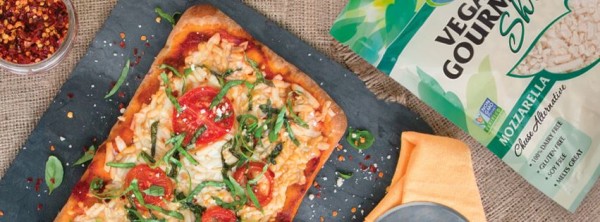By Telegiz , | June 05, 2018
- PREV
- Image1of0
- NEXT
First, it was the vegetarian movement, then it was veganism - two lifestyle choices that are catapulting in popularity thanks to leading celebrity figures such as pop stars Ariana Grande and Demi Lovato embracing either movement. Arguably the most intelligent human being to ever live, Albert Einstein, was vegetarian too, and one would like to think he'd know a good thing when he was on to it.
Like Us on Facebook

Source: Pexels
Similar to the first sandwich in first century B.C, or the modern-day avocado burger, perhaps the biggest signs that things are fast changing is what's on the shop shelves, as consumers drive demand and dictate product assortment. This year, for example, Sainsbury's, UK, rolled out a seven-strong line of premium vegan foods, including the UK's first pulled jackfruit - the equivalent of pulled pork - to hit the shelves.
The latest vegetarian and vegan food innovations mean this is just the beginning, and thanks to technology, the meatless revolution could be well and truly underway.
Vegan Eggs

Source: Facebook
Follow Your Heart, the company behind the first vegan mayonnaise, Vegenaise, has now created the first vegan egg. The bags of powdered 'eggs' are cleverly packaged in egg cartons to simulate the real thing. So what's it made of? Nutritional yeast, black salt and algae extracts, it turns out. The VeganEgg can be used in baking but this Follow Your Heart powdered product also makes a surprisingly good omelette, if the independent video demo is anything to go by.
Memphis Meats
One thing's for sure, whoever comes up with a decent substitute for meat both in taste and texture will make a killing - of the financial kind, that is. Memphis Meats isolates animal cells to make cultured meatballs and other meats. They hope to be on the market by 2020. Memphis Meats harvest the animal cells, which are able to regenerate, and infuse them with oxygen, nutrients and foetal bovine serum to kick-start the process. In nine to 21 days, the cells or meat can be harvested. This process uses 90% less water and ground as well as 50% less energy compared to normal farming - not to mention there being no need for an animal to suffer.
The Impossible Burger
Thanks to the Impossible Burger, you may not have to wait until 2020 for your meatless burger patty or meatballs to go with some of the finest vegetarian fares on offer: Middle Eastern and Moroccan mezzes, authentic Italian herb and tomato crispy-based pizzas or passata-infused pasta with fresh basil to garnish. This burger, which looks like and apparently tastes like beef, gets its crust from potato proteins and succulence from coconut oils. It must be convincingly good, given that it attracted a sizeable investment from Bill Gates. As we see restaurants that cater to the vegetarian market on apps like Deliveroo aiding in the ease of obtaining freshly cooked meat-free meals at home, we can see technology definitely has its place in the food industry.
Vegan Cheese
Miyoko's kitchen uses a nut-based product that's cultured to give it that distinctive cheese tang, even though the product cannot be called 'cheese'. Until now, most vegan cheese brands have focused on either making their product taste like cheese or melt like cheese, but Miyoko's Kitchen does both. A game changer.
These innovations in eggs, cheese and meat - really the three staples that stop people from going vegetarian or vegan - mean that the stumbling blocks to a plant-based lifestyle have been all but eradicated. The future for animals, it seems, just got a lot brighter.
-
Use of Coronavirus Pandemic Drones Raises Privacy Concerns: Drones Spread Fear, Local Officials Say

-
Coronavirus Hampers The Delivery Of Lockheed Martin F-35 Stealth Fighters For 2020

-
Instagram Speeds Up Plans to Add Account Memorialization Feature Due to COVID-19 Deaths

-
NASA: Perseverance Plans to Bring 'Mars Rock' to Earth in 2031

-
600 Dead And 3,000 In The Hospital as Iranians Believed Drinking High-Concentrations of Alcohol Can Cure The Coronavirus

-
600 Dead And 3,000 In The Hospital as Iranians Believed Drinking High-Concentrations of Alcohol Can Cure The Coronavirus

-
COVID-19: Doctors, Nurses Use Virtual Reality to Learn New Skills in Treating Coronavirus Patients







